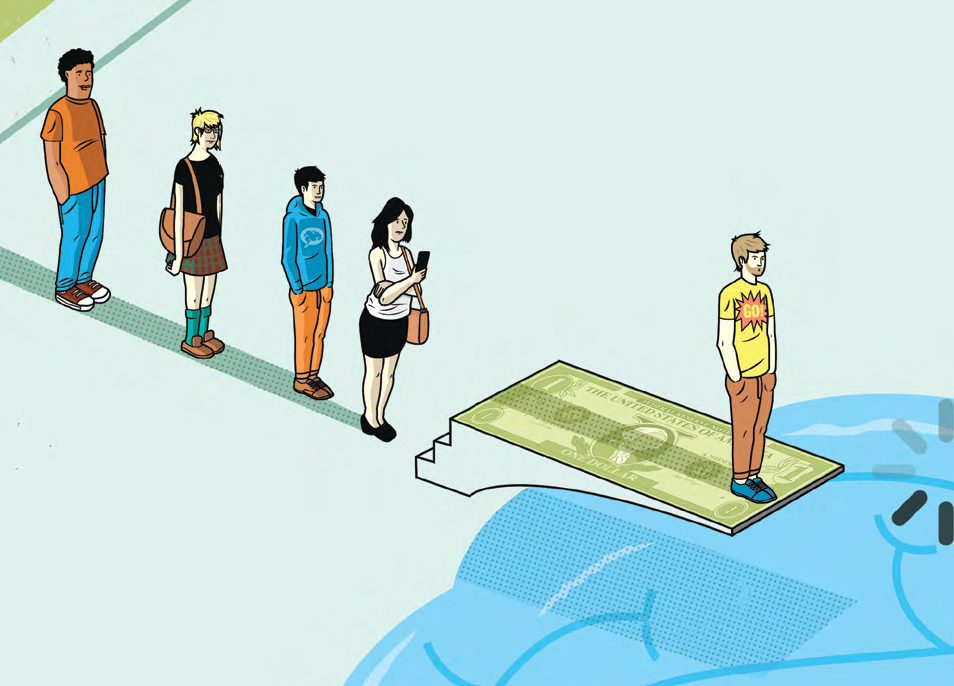New research from Moran Cerf seeks to improve our long-term thinking by combining money with climate change
By Chuck McCutcheon | Illustration by Christian Dellavedova. Article originally published in Northwestern's Kellogg Magazine (2016 Spring-Summer Edition).
In the famous “Stanford marshmallow experiment” of the 1970s, researchers watched children choose between immediately gobbling a single treat or waiting to receive more candy. Now, Moran Cerf of Kellogg and Malcolm MacIver of the McCormick School of Engineering are building on that work in a highly sophisticated, 21st-century fashion to better understand how people make decisions about the future.
Cerf, an assistant professor of marketing at Kellogg and a professor of neuroscience, and MacIver, a professor of mechanical engineering, are conducting an experiment exploring ways to improve “temporal discounting,” the tendency to attach a greater value to immediate rewards over those in the future. Specifically, the project will focus on one of society’s largest temporal discounting problems: climate change.
A preselected group of 1,000 people are each given a certain amount of money to invest in an online prediction market about climate change. As the experiment progresses, the participants will be questioned to gauge their ability to think into the future and deliberate climate change topics.
Most people aren’t good at assessing what’s ahead, Cerf said. But if reward is involved, they tend to be more invested — figuratively as well as literally — and become better informed. Ultimately, the experiment doesn’t just look at how behavior changes, but also at how well the brain adapts, or doesn’t, over time.
“We try to use the domain of money to help people learn about climate change, while changing their neural responses to far-in-time events. This will potentially change their views on climate change,” Cerf said, as the participants become more informed — merely by having to make smarter financial bets.
Given current discussions about the Earth’s warming atmosphere and its potentially alarming environmental effects, the project would draw attention no matter who was conducting it. But Cerf’s stature adds buzz.
Cerf is a former Israeli soldier turned computer hacker who, before Kellogg, earned a living breaking into banks online to expose their security vulnerabilities. He’s extensively quoted in the media about his brain research, teaches a screenwriting class on science in film, consults on Hollywood projects like “House” and “Limitless,” and recently spoke at the TED2016 Conference in Vancouver about how people process dreams.
The project is a collaboration between Kellogg, McCormick and the Northwestern Institute on Complex Systems (NICO), which brings together faculty to solve practical problems through complexity science, an emerging field that explores the relationships between parts of a system and how those systems interact with the environment.
A NICO working group on neuroscience helped Cerf get to know MacIver. “We learned we were interested in a lot of the same things,” Cerf said, adding that one of their chief fascinations was the question that drives their experiment: “Why are humans so bad at things like the future?”
“NICO workgroups were set up to find joint solutions that overcome disciplinary blind spots,” says Brian Uzzi, NICO co-director and faculty director of the Kellogg Architectures of Collaboration Initiative (KACI).



